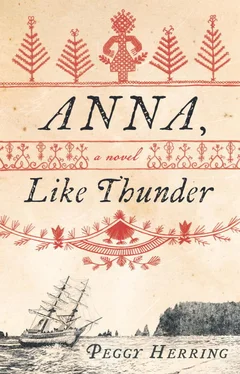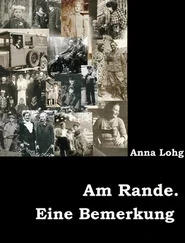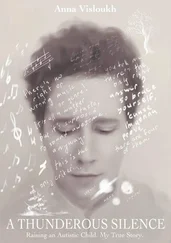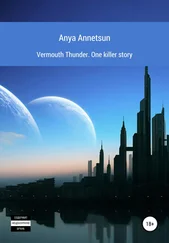Makee. In his beaver hat.
“Anna,” he says, “how are you feeling?”
I meet his eyes for a moment. They’re wide with worry. I quickly close mine. It takes too much effort to be in his gaze. He calls out in his language. I hear the rattling of shells or bones. There’s somebody singing.
“You must rest,” he says. “These are terrible days. You must get better. Your son is counting on you.”
I remember the day I was swept under the wave when the brig ran aground and we were all running to shore. What everything sounded like from beneath the water—the roar of the surf and the people’s voices calling out. Makee’s voice sounds like that—though I know he’s here, he could be in another world.
“I have good news. The ships are coming. There’s an American ship at Mokwinna’s.”
There’s drumming, loud as thunder. My bed shakes, my bones rattle.
“You can go home, babathid. Floating woman, you have a destination.”
“Makee—I’m sorry,” I say. Or at least, I want to say.
“Get better, Anna. The ship is on its way.”
I lean back, pressing into the bushes, and when I do, a curtain is drawn, and the night sky opens. Where is my beloved Polaris?
There. She glimmers. Draco the Keel is sailing a never-ending circle around her. The sea tosses him, but he can depend on her. She is the tip of the mast on the ship that will traverse the northern hemisphere forever.
Of the countless possible combinations of stars, I found this one. My ship.
It’s arrived.
It rocks gently. The sail billows.
“We’re here!” I cry. I wave. I stand on my toes and my arm sweeps the sky. “Can you see me?”
The ship is lifted on a wave and plummets down the other side. A rooster tail of spray splashes its deck. Its sail swells, then flops, once, twice, before filling again. The ship is tacking. They’ve seen me.
The boat swoops down. “Here!” I cry. But it sails past. It missed. A wave of grief washes over me. “Come back!”
The wind drives it away. Then the sail flops once more. It’s tacking again. The ship swoops back down and blackens the sky.
It’s close. Closer. The bulwark is almost out of reach but—I jump. It takes a long time and it takes a short time. Then my hands close around the bulwark. A wave throws itself against the hull and water sprays and soaks me. I throw my leg over. I pull myself onto the deck. I look up.
Polaris glitters.
After Anna died in August 1809, the surviving Russians continued to live among the coastal First Nations. The record tells us that her husband, Nikolai Isaakovich, died in February 1810 from a combination of consumption and a broken heart. Kozma Ovchinnikov and two Aleuts also died of unknown causes at unknown dates.
On May 6, 1810, the US vessel Lydia , captained by Thomas Brown, approached the shore near Tsoo-yess. The man known in the novel as Makee immediately took Timofei Osipovich out to the ship where they were surprised to find another of the Russian crew, Afanasii Valgusov. He had been traded to an unidentified First Nation community on the Columbia River and subsequently traded to Captain Brown. Makee then brought to the vessel as many of the Russians as he could and traded for them. The negotiations were not easy. Makee asked a higher price for two men, one of whom was Ivan Kurmachev, fictionalized in this novel as a carpenter to explain the higher asking price. In the end, in return for each person, Makee’s people received five blankets, five sazhens (about 35 feet) of woolen cloth, a locksmith’s file, two steel knives, a mirror, five packets of gun powder, and the same quantity of small shot. In his account, Timofei Osipovich Tarakanov calls this an outrageous sum, but when measured against what would have normally passed hands when trading a slave at that time and the trouble to which the Makahs, Quileutes, and Hoh went to feed, clothe, and house the Russians, it is not so outrageous. Though it took a year and a half, Makee kept his promise. The Lydia took the surviving Russians back to Novo-Arkhangelsk.
Makee is identified in the Russian account as Yutramaki, a name whose pronunciation somehow eludes Anna and the Russians. Furthermore, this intriguing man appears in The Adventures of John Jewitt, Only Survivor of the Crew of the Ship Boston, During a Captivity of Nearly Three Years Among the Indians of Nootka Sound in Vancouver Island, where he is named Machee Ulatilla. In the Jewitt account, Makee plays a key role in Jewitt’s rescue, just as he explains to Anna when he shows her the metal cheetoolth.
Yakov and the apprentice Filip Kotelnikov were not among those rescued by the Lydia . The people with whom Yakov was living after Anna’s death traded him to Captain George Washington Eayres, commander of the American vessel Mercury . It is not known what happened to him after that time, but it is likely that he did not return to the Russian-American Company but instead worked for the Americans. Filip Kotelnikov was sold to “a distant people.” Despite his revulsion for the Hoh people when he was first captured, there is evidence to suggest he married an Indigenous woman and had children and may have lived at the Russian Fort Ross in California for many years. There are Kotelnikovs living still in California; the surname can also be found in the Seattle area.
Maria, to whom I assigned the fictional job of cook, was among those rescued. She also has an extraordinary postscript to the story. The oral tradition of this incident, recounted by Ben Hobucket of the Quileutes in the early 1900s and finally published in 1934, states that Maria lived with the Hobucket family until the rescue Makee arranged. But several years later, a Russian ship returned to the mouth of the river looking to capture Quileutes as slaves. The curious Quileutes who paddled out to the ship without this knowledge were startled to see Maria on deck. She shouted in the Quileute language to the people in the canoes, telling them of the ship’s intent. “Go away from this place!” she called. “If you come aboard, you will be carried away as slaves. You will never see your people again.” According to the Hobucket account, the people heeded her advice and returned to shore.
I came across this story more than ten years ago at the Fisgard Lighthouse National Historic Site in Victoria, BC. There was a display about Pacific west coast shipwrecks, and in that display, a single line about the Sviatoi Nikolai . That single line said that a Russian woman had been onboard, and that as a result of the wreck, she was probably, in 1808, the first European woman to set foot on the Olympic Peninsula.
Because of where I live, because of my Russian ancestry (my mother is Russian), I was instantly curious.
The story is not well known. It took me a couple of years just to find Anna’s name. When I discovered that she hadn’t wanted to be rescued, I became hooked.
But, very quickly, I realized that telling Anna’s story would mean writing characters who were Indigenous and representing them in my narrative. As a non-Indigenous writer, this felt especially daunting given the history of non-Indigenous writers misrepresenting Indigenous people and the terrible legacy that has left behind.
So, I first stepped back from the story and tried to inform myself about this legacy. In studying cultural appropriation, I thankfully ran into the work of Dr. Jeannette Armstrong (Syilx-Okanagan). Her 1990 essay, “The Disempowerment of First North American Native Peoples and Empowerment Through Their Writing” {3} 3 Armstrong, J., Gatherings of the En’Owkin Journal of First North American Peoples, 1 (1) “The Disempowerment of First North American Native Peoples and Empowerment through Their Writing” (Penticton, BC, Theytus Books, 1990) 141.
became a foundational document for me. In it, Dr. Armstrong asks non-Indigenous writers to imagine creating new works that are courageous and honest about colonialism and imperialism. This, she writes, would require tackling and explaining the roots of the racism that’s inherent in many of the structures and practices that still exist today. She challenges non-Indigenous writers to interpret the prevailing thinking that sustains domination—instead of trying to interpret Indigenous stories. She likens this to a process of turning over and examining the rocks in one’s own garden while leaving your neighbour’s garden alone.
Читать дальше













